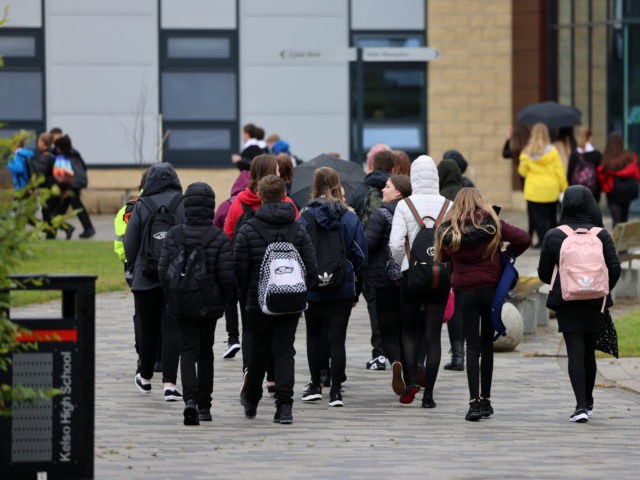The Scottish government has been urged to scrap a school survey that includes at least one question regarding 14-year old students’ experience with anal sex.
One of Scotland’s largest parental organisations has urged their government to scrap a school survey that will ask students as young as 14 about their experience with anal sex.
The Health and Wellbeing census, which asks questions involving students’ attitudes to play, exercise, school work, body image, mental health, alcohol, drugs, bullying, relationships and sexual health, has also raised questions regarding the confidentiality of participants.
According to a report by The Guardian, the chief executive of parental organisation Connect, Eileen Prior, has said that the census is “not fit for purpose”, and that the survey should be withdrawn “until it takes a children’s rights approach, which has clearly been missing”.
Prior also reportedly expressed concern over student privacy regarding the document, saying that “the information gathered clearly makes children and young people identifiable at school, local authority or national level”.
The report goes on to note that students are asked to fill in their unique Scottish candidate number on the survey, and that parents have reportedly been told that students could be identified “in exceptional circumstances” using the number if needed.
Another issue raised by Prior is that neither parents nor students are given clear enough information on how their data is to be used, though one spokesman from the Scottish government has rejected this.
“Parents/carers and children and young people are informed of how their data will be used in advance of any taking part in the census and they can decide to opt out if they wish,” the spokesman said. “If children and young people do take part, they can skip any question they don’t wish to answer or state that they would ‘prefer not to say’.”
The spokesman also clarifies that it will be up to local authorities whether to decide what questions they ask students in their area, although the “Scottish government has worked with stakeholders to design a set of questionnaires”.
While the nature of the questions in the survey have already raised considerable controversy on their own, other issues with the survey have also been pointed out as potential causes for concern.
Conservative councillor for the City of Edinburgh, John McLellan, wrote in Edinburgh News that it appears the SNP-led government are trying to use the survey to slip the nation’s failed named-person policy “by the back door”.
Having previously been described as a “Stalinist“, the named-person policy would have involved the Scottish government appointing a “named person” to monitor every child in the country.
Some local authorities were also pushing for named persons to be able to override parental decisions regarding transgender issues, being able to consent to a child’s transitioning process should the young person’s parents not be willing.
While originally scheduled to come into force in 2016, the scheme — which critics feared would also undermine parents, breach privacy and divert resources away from children who are genuinely vulnerable, according to the BBC — was rejected by the courts for not being within the powers of the devolved Scottish government.
The councillor notes that the ability for students to be identified by their candidate numbers bears a resemblance to the scrapped measure.
“It looks like the SNP’s failed named-person policy by the back door, with candidate numbers used so problems can be identified and intervention triggered if necessary,” McLellan wrote in his opinion piece. “But what are the triggers and who decides?”
“Parents won’t be allowed to see any data gathered so they might never know, and the only reassurance in the guidance is that “this should not happen very often”. Well, that’s OK then,” the councillor continued with ironic emphasis.

COMMENTS
Please let us know if you're having issues with commenting.